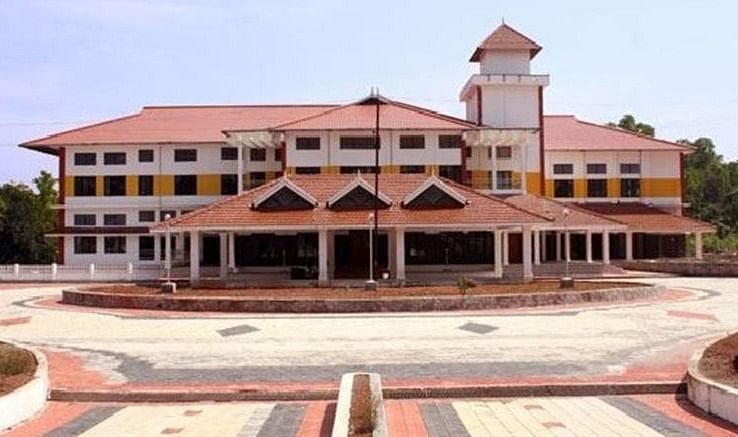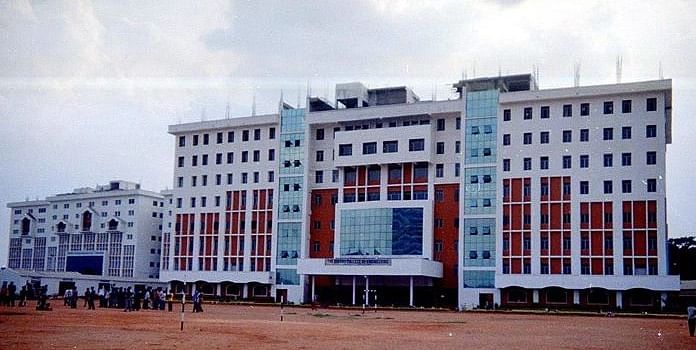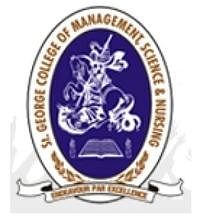BSc Genetics Subjects and Syllabus 2025

The BSc Genetics syllabus covers comprehensive insight into several traits & modifications in organisms and genetics. BSc Genetics subjects cover the study of Biology, Biochemistry, Botany, Biotechnology, and Microbiology.
The subjects in BSc Genetics provide essential knowledge of evolutionary processes and mutations of genes. BSc in Genetics course syllabus is well-curated to help aspirants understand the basic principles associated with Cell Biology, Cytogenetics, Molecular Genetics, DNA Technology, etc.
Table of Contents
Also, Check: BSc Syllabus and Subjects
Semester-wise BSc Genetics Syllabus
BSc Genetics syllabus is designed to teach the students the basics of all human biology, DNA mutations, genes, hereditary, etc. The semester-wise BSc in Genetics course syllabus is given below:
First-Year BSc Genetics Syllabus
The 1st year subjects in BSc Genetics syllabus are given below:
| Semester I | Semester II |
|---|---|
| English I | English II |
| Regional Language I | Regional Language II |
| Fundamentals Of Cell Biology & Genetics | Bio Instrumentation and Animal Cell Culture |
| Botany | Gender Sensitization |
| Environmental Studies | Nutritional Genetics |
| Elective | Elective |
Practical Subjects in BSc Genetics 1st year
Some of the practical topics in the first-year BSc in Genetics syllabus are given below:
- Microscopy
- Genetic Study of model organisms and their significance
- Observation of Mitotic stages in permanent slides
- Preparation of Mitotic slide
| B.Sc Genetics Course Details | Scope of B.Sc Genetics |
Second-Year BSc Genetics Syllabus
The 2nd year subjects in BSc Genetics syllabus are given below:
| Semester III | Semester IV |
|---|---|
| English III | English IV |
| Regional Language III | Regional Language IV |
| Cytogenetics | Molecular Genetics |
| Pharmaco-genetics | Human Genetics and Genetic Counselling |
| Elective | Elective |
Practical Subjects in BSc Genetics 2nd year
Some of the practical topics under the 2nd year B.Sc Genetics subjects are given below:
- Culturing and Handling of Drosophila
- Study of Chromosomal Aberrations:
- Preparation of Salivary Gland Chromosomes
- Extraction of DNA
| Top BSc Genetics Colleges in Karnataka | Top BSc Genetics Colleges in Telangana |
Third-Year BSc Genetics Syllabus
The 3d year subjects in BSc Genetics syllabus are given below:
| Semester V | Semester VI |
|---|---|
| English V | English VI |
| Regional Language V | Regional Language VI |
| Plant Cell and Tissue Culture Technology | Genes and Development |
| Recombinant DNA Technology | Gene Regulation and DNA Repair |
| Radiation Genetics | Developmental, Evolutionary, and Biometrical Genetics |
| Elective | Elective |
Practical Subjects in BSc Genetics 3rd year
Some of the practical topics under the 3rd year BSc Genetics subjects are given below:
- Instrumentation
- DNA/ RNA Quantification
- Study of Karyotypes
- Study of Pollen Fertility
| Top BSc Genetics Colleges in Gujarat | Top BSc Genetics Colleges in Tamil Nadu |
BSc Genetics Subjects
BSc Genetics subjects provide a theoretical and practical understanding of Human Genetics, Behavioural Genetics, Biometrical Genetics, and Molecular Genetics along with the study of biology and chemistry. Some of the core and elective subjects in BSc Genetics syllabus are given below:
BSc Genetics Core Subjects
B.Sc Genetics subjects consist of core subjects as well as elective topics. Some of the core topics under the BSc Genetics course syllabus are given below:
- Fundamentals Of Cell Biology
- Cytogenetics
- Molecular Genetics
- Principles Of Genetics
- Recombinant DNA Technology
- Basic Human Genetics
BSc Genetics Elective Subjects
Some of the elective subjects in BSc Genetics syllabus are given below:
- Genetic Counselling
- Medical Genetics
- Human Genetic Disorders
- Clinical Genetics
- Radiation Genetics
- Geno-toxicology
- Statistical Genetics
- Forensic Genetics
| Top BSc Genetics Colleges in Kerala | Top BSc Genetics Colleges in Jharkhand |
BSc Genetics subjects in Detail
BSc in Genetics subjects are dynamic and spread across several domains. A detailed view of some of the subjects in BSc Genetics is given below:
|
BSc Genetics subjects |
Topics Covered |
|
Principles of Genetics |
History of Genetics, Law of Segregation, Gene Interactions, Elements of Biometry, Sex Determination |
|
Cytogenetics |
Physical Basis of Inheritance, Special types of Chromosomes, Sex Linkage, Extra Chromosomal Inheritance, Chromosomal aberrations |
|
Molecular Genetics |
Chemical Basis of Heredity, DNA Replication, Genome organization, Gene regulation, Bacterial Genetics, Mutations |
|
Recombinant DNA Technology |
Introduction to RDT, Tools for RDT, Gene transfer methods, Synthesis of genes, Selection and screening of recombinants |
|
Applied and Behavioural Genetics |
Genetics in Medicine and Industry, DNA Fingerprinting, Bioinformatics, Genetic resources and Biodiversity, Molecular markers as diagnostic tools, Heterosis in animal and plants |
|
Developmental, Evolutionary, and Biometrical Genetics |
Developmental Genetics, Genetics of development in Plants and Animals, Evolutionary and Population Genetics, Quantitative characters and inheritance, Biometrical Genetics |
BSc Genetics Course Structure
BSc Genetics lasts for three years and six semesters. The course contains the core and elective subjects along with a project. Internships and thesis submissions are also a part of the curriculum. The standard course includes the following things:
- Core and Elective subjects
- 6 Semesters
- Projects
- Practicals
- Lab Sessions
- Research
B.Sc Genetics Teaching Methodology And Techniques
The teaching style of BSc Genetics consists of a combination of classroom learning and various visits to laboratories. Students get to examine everything that is taught in the theory sessions themselves in the laboratory. Some of the teaching methodologies are listed below:
- Practical Sessions
- Model Demonstration
- E-Learning
- Use of Animation
- Group Discussion
- Co-curricular Activities
BSc Genetics Projects
The students have to do projects on various topics such as crop improvement, fingerprint patterns, etc., given to them by their college and are graded based on these projects. Most of these projects are research-based, and students have to prepare a thesis. Some common project topics under BSc in Genetics course syllabus are as follows:
- Are Fingerprints Inherited?
- Family Tree of Traits
- Drugs And Genetics
- What Kind Of Mutation Matters?
- The Tree Of Life
BSc Genetics Reference Books
The study of genetics inspires the aspirants to However, it is a good practice to refer to books to improve the learning curve. Here are some additional genetics reference books which help in a better understanding of the BSc in Genetics subjects:
| Books | Publication |
|---|---|
|
Genetics |
Mcmillan |
|
Principles of Genetics |
John Willey |
|
Molecular Biology of the Gene |
Freeman |
|
Developmental Biology |
Sinauer |
|
Genetics: From Genes to Genomes |
McGraw-Hill |
Top BSc Genetics Colleges
Top Science Entrance Exams
BSc Genetics Fee Structure
FAQs on BSc Genetics Syllabus and Subjects
Q: What is the 1st year syllabus of BSc Genetics?
Q: What are the core subjects of BSc Genetics?
Q: What are the practical subjects in BSc Genetics?
Q: What are the BSc Genetics projects?
Q: What are the important books for BSc Genetics?






















